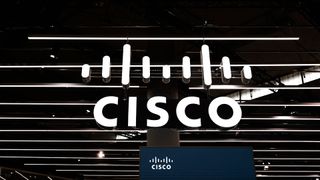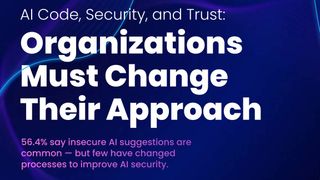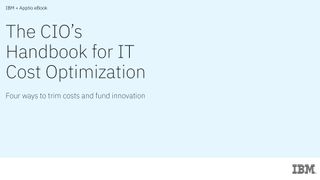Cisco just launched a $1 billion investment fund for AI startups — and it's already backing Mistral, Cohere, and Scale AI
Cisco is flexing its muscles in the generative AI space in a bid to help enterprise customers deploy their own AI

Cisco has set out why the networking giant should be seen as a key player in the age of generative AI, announcing a billion dollar investment fund and program to make it easier for enterprise customers to run their own AI.
At the Cisco Live event in Las Vegas, the firm launched the fund to invest in AI companies. Cisco said it has already committed nearly $200 million of the $1B investment fund so far, and said it is making “strategic investments” in AI companies including Cohere, Mistral AI, and Scale AI to complement its ongoing AI strategy.
Cohere provides security-focused frontier large language models (LLMs) and Retrieval-Augmented Generation (RAG) capabilities aimed at enterprise customers.
Mistral AI specializes in generative AI while Scale AI provides training and validation for AI applications. Cisco recently participated in Scale AI’s Series F funding as the round’s largest strategic investor.
The move from Cisco forms part of a concerted effort to tap into what has become a lucrative industry over the last 18 months. The firm pointed to recent research from tech analyst IDC which suggests the global AI market is expected to double in size to over $500 billion in the next three years.
The networking giant wants to use generative AI to enhance its products and services. Investing in these companies and forging closer ties is a good way to keep up with the latest developments, the firm said.
Cisco said that over the past several years, it has made over 20 AI-focused acquisitions and investments, furthering generative AI and machine learning capabilities and integration of AI across its portfolio.
Get the ITPro. daily newsletter
Receive our latest news, industry updates, featured resources and more. Sign up today to receive our FREE report on AI cyber crime & security - newly updated for 2024.
Cisco eyes collaborative ties with AI innovators
In addition to these investments, Cisco will also be working with AI companies on product collaborations that allow it to co-innovate. One thing that makes Cisco attractive to AI companies is its enterprise connections, because that’s something that they don’t have according to chief strategy officer Mark Patterson.
“AI is fundamentally changing every industry around the globe, it's changing the way users and businesses communicate with each other, it's changing the way they leverage technology and Cisco, we believe, has a very significant role to play being the trusted partner to help our customers navigate this new era,” he said.
“At the highest level, Cisco connects and protects the AI era,” he added, pointing how Cisco provides infrastructure to power AI, starting at the hyperscale level, but also with eyes on enterprise customers as they start to deploy AI in their own data centers too.
“Both organically and inorganically you are seeing us invest in a big, big way across the entire ecosystem and across the entire technology stack for AI in an effort to be the partner to help our customers navigate this transition,” he said.
Customers need to secure and protect AI because they are bringing some of their highest value data together, Paterson added.
Cisco unveils Nexus HyperFabric
At the event, Cisco unveiled its Nexus HyperFabric AI clusters which it said will make it easy for enterprise customers to build infrastructure to run generative AI models and inference applications without deep IT knowledge and skills.
The AI cluster combines Cisco AI-native networking with Nvidia’s accelerated computing and AI software, and a robust Vast data store. The clusters will allow customers to focus on AI innovation rather than managing the IT infrastructure, the company said.
While the promise of AI is clear, the path forward for many just starting out is not, said Jonathan Davidson, executive vice president and general manager at Cisco Networking.
“Customers often face economic and operational challenges to get an AI stack up and running.”
Cisco’s own research suggests that in the next two years, 60% of IT leaders and professionals expect to deploy AI-enabled predictive network automation, and 75% plan to deploy tools that offer end-to-end visibility via a single console into different network domains including campus and branch, WAN, data center, internet, public clouds, and industrial networks.
Steve Ranger is an award-winning reporter and editor who writes about technology and business. Previously he was the editorial director at ZDNET and the editor of silicon.com.




